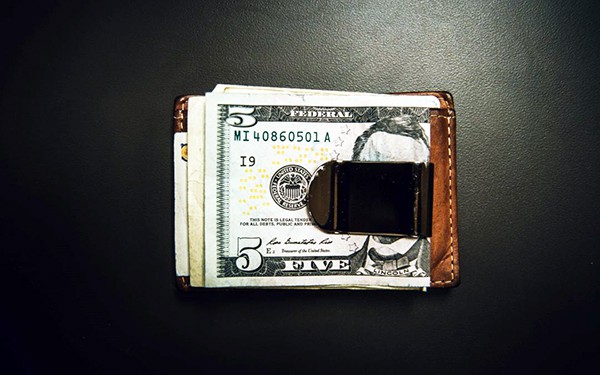
4 Things contractors should know about getting paid abroad
Posted on 15th January 2019 by Phil Ainley
Despite current uncertainties surrounding Brexit, opportunities for UK contractors who work or are thinking of working abroad continue to remain lucrative.
However, working abroad usually means getting paid in a foreign currency, resulting in significant hidden costs which contractors need to be aware of.
Here are 4 things contractors should know about getting paid abroad to help them optimise their overseas earnings:

1. Don’t assume a bank is the best (or only) place to convert currency payments
Quite naturally most people will turn to their bank as it appears the most obvious solution to process their foreign earnings. Although banks will tell you about their payment fees, they make a much bigger profit on their exchange rates, skimming off the payment in a way you aren’t aware of.
When receiving a foreign currency payment into your account, banks will not exchange the currency at favourable exchange rates. In fact, their rates could be as much as 2%-4% worse than the ‘real’ exchange rate. The ‘real’ exchange rate is the wholesale rate at which banks convert currency between each other but from which they then take a cut when passing the currency on to their customers.
“If you want a better idea of what ‘real’ exchange rates look like, take a look at our foreign exchange platform” says Jamie Holmes of CurrencyWave. “All too often, consumers are left in the dark about the true costs of FX and this can have a significant impact on the eventual amount received into their bank account”.
2. Shop around for the best rates
CurrencyWave seeks to do away with the opaque methods banks employ by showing customers live wholesale interbank rates alongside their FX quotes. This means that they can instantly see how much margin is taken as a charge on each transaction. Not only is the CurrencyWave platform more transparent in the way it does business, being an online service means that it can pass significant savings onto clients.
Rather than the 2-4% cost that banks usually apply to their exchange rates, the CurrencyWave platform reduces this to 0.5%-1%.
Says Holmes: “For every €10,000 converted, this could equate to additional income coming in of up to £270. Over the course of a year this will add up to a very tidy sum indeed”.
3. Benefit from local payments and avoid cross-border charges.
Traditionally, contractors are paid by international bank transfer which can be an expensive method for both payer and payee. Bank charges for sending a cross border payment can cost the sender anything up to £40.
Furthermore, when the contractor receives payment, they may find that further charges have been taken off before the money hits their account. This is because some banks use the services of correspondent banks to handle their foreign payments. These ‘middlemen’ help route the payment through the international banking network and take a cut of the funds for themselves in the process.
One way of avoiding these charges is to have your income paid into a foreign currency account but opening such accounts through a bank can be both expensive and cumbersome says Holmes. “Through our Global Collections account, you can arrange for your foreign income to be paid to you using domestic bank payment methods, thus avoiding cross border payment charges altogether. This also gives you control over the timing and the exchange rate at which you convert your payments back to Sterling, helping you maximise the return on your hard-earned money”.
4. Avoid exchange rate uncertainty
Leading up to the Brexit deadline and beyond, currency markets will undoubtably remain volatile and GBP exchange rates could swing significantly throughout this period. Currency movements could therefore adversely affect the amounts contractors expect to receive. One way of avoiding this potential impact on cashflow is to consider using forward exchange rate contracts.
Frequently used by large businesses, forward exchange rate contracts allow you to fix a currency exchange at today’s rate and take delivery of that currency at some time in the future. For contractors who would prefer to avoid the risk of exchange rates moving out of favour, this can provide valuable peace of mind.
To find out more about overseas contractor payments, call CurrencyWave on 0113 451 0180, email info@currencywave.com or visit www.currencywave.com
Receive a £20 Amazon voucher if you open an account with CurrencyWave and convert a minimum of £5,000 (or other currency equivalent) through the platform.
Disclaimer:
The information in this article has not been written by Caunce O’Hara & Co Ltd or any of Caunce O’Hara’s employees. None of the opinions or views contained within this article are Caunce O’Hara’s nor do we accept responsibility for any financial advice given within the article.
Caunce O’Hara & Co Ltd do not provide Tax advice nor advice regarding Investments. Any commitments are taken solely at the person’s own discretion.
Related Articles:
Wave goodbye to expensive international currency transfers
Hidden foreign exchange charges cost SMEs dearly
Forward thinking for business currency payments



